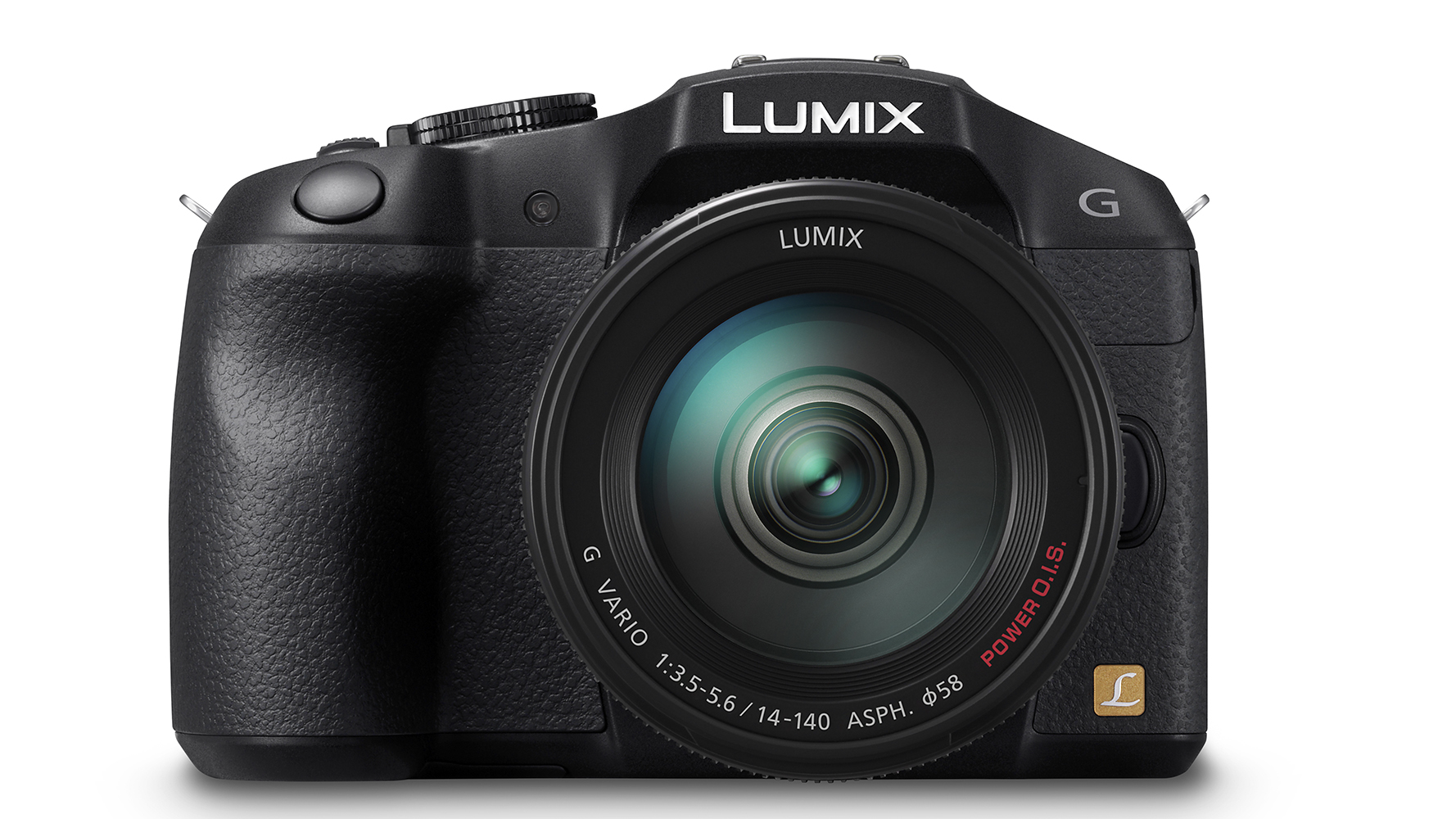Why you can trust TechRadar
We shoot a specially designed chart in carefully controlled conditions and the resulting images are analysed using DXO Analyzer software to generate the data to produce the graphs below.
A high signal to noise ratio (SNR) indicates a cleaner and better quality image.
For more more details on how to interpret our test data, check out our full explanation of our noise and dynamic range tests.
Here we compare the Panasonic G6 with the Sony NEX-6, Olympus PEN Lite E-PL5 and Panasonic G5. The Panasonic G6 has the greatest sensitivity range of all the cameras here.
JPEG signal to noise ratio
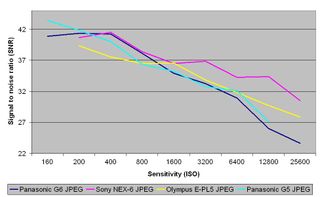
These results show that the Panasonic G6's JPEG files show a weaker signal to noise ratio than those from the Panasonic G5 at the bottom and top ends of the sensitivity scale, but are stronger at ISO 400 and 800. At ISO 1600 and 3200 their scores are extremely similar. JPEGs from the G6 contain slightly greater signal to noise ratios than those from the Sony NEX-6 at ISO 200, then similar levels at ISO 400 and 800, before falling behind at ISO 1600 and above. Similarly, the G6's JPEGs beat the Olympus PEN Lite E-PL5's for signal to noise ratio at ISO 200-800, but fall behind at ISO 1600 and above.
Raw signal to noise ratio
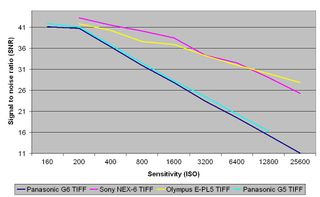
Scores for signal to noise ratios of the TIFF images (after conversion from raw) are much easier to follow, with TIFFs from the Panasonic G6 showing every so slightly weaker signal to noise ratios than those from the Panasonic G5 at every sensitivity setting, and significantly weaker ratios than those from the Sony NEX-6 and Olympus PEN Lite E-PL5 at every sensitivity setting.
JPEG dynamic range
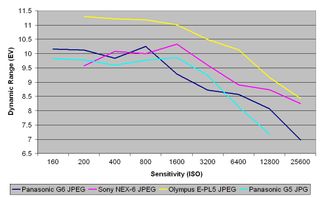
As we can see from this chart, the Panasonic G6's JPEGs contain more dynamic range than the Panasonic G5's at every sensitivity but ISO 1600 and 3200. The G6's JPEGs also show greater dynamic range than those from the Sony NEX-6 at ISO 200 and 800, but they're weaker at other sensitivities, while JPEGs from the Olympus PEN Lite E-PL5 outperform the G6's JPEGs at every sensitivity setting.
Raw dynamic range
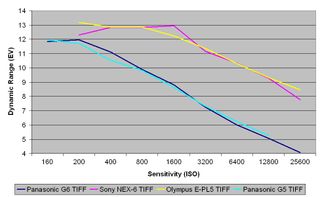
Looking similar to the other TIFF results, this chart indicates that the Panasonic G6's TIFF images (after conversion from raw) contain similar levels of dynamic range to those from the Panasonic G5, at every sensitivity setting, and are well and truly beaten by the TIFFs from the Sony NEX-6 and Olympus PEN Lite E-PL5 at every sensitivity.
